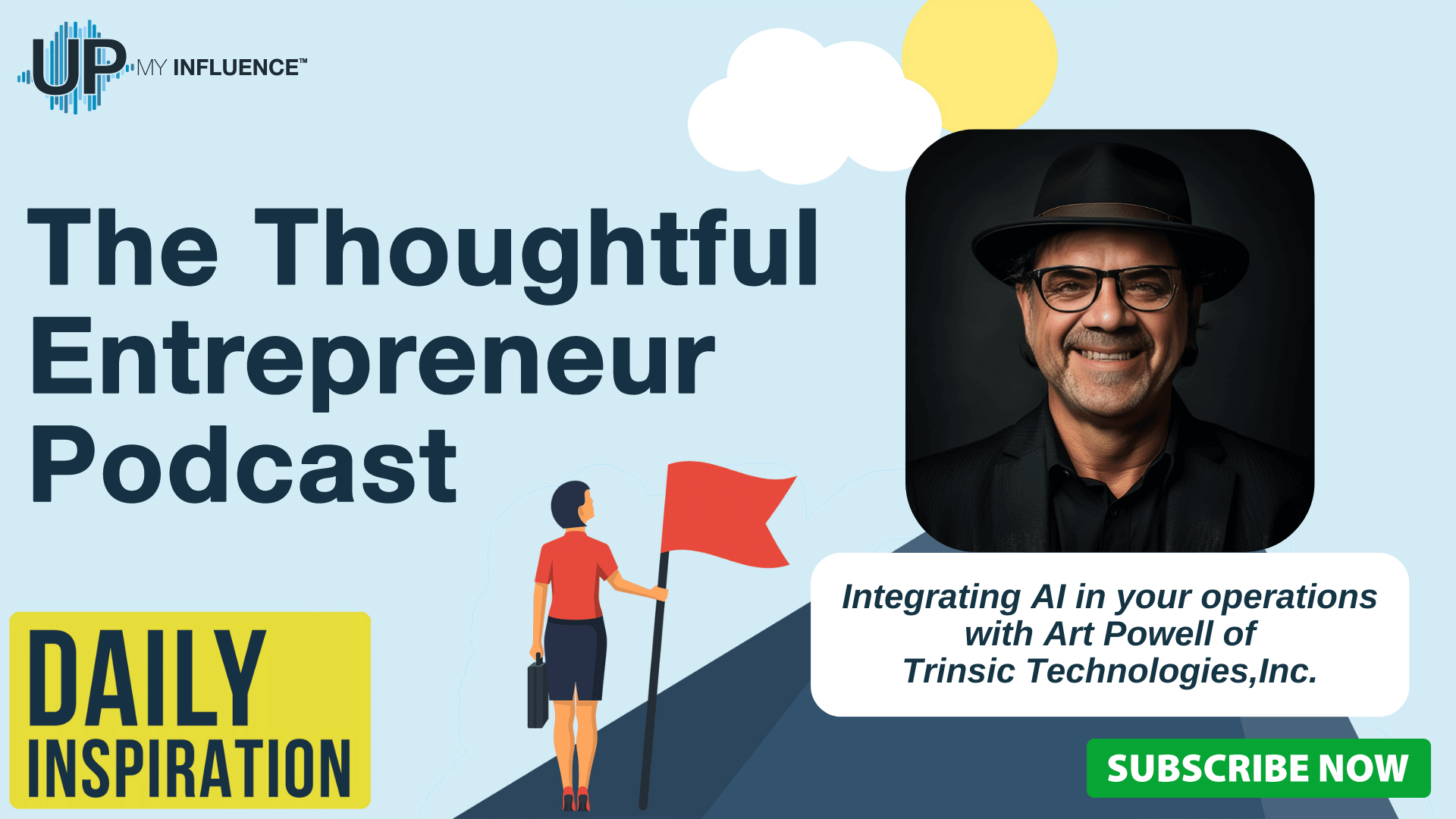THE THOUGHTFUL ENTREPRENEUR PODCAST
In this episode of the Thoughtful Entrepreneur, your host Josh Elledge speaks to the Founder & CEO of Trinsic Technologies, Art Powell.

Art Powell brought a wealth of knowledge on how AI is reshaping the business landscape. At Intrinsic Technologies, they're not just observers of this revolution; they're active participants, crafting AI solutions that propel businesses forward. One such innovation is AVOS, a product that exemplifies the company's commitment to leveraging AI for strategic advantage.
Implementing AI is about a strategic overhaul of business operations. Art emphasized the need for a careful and considered approach. It's not enough to jump on the AI bandwagon; companies must integrate these technologies to align with their long-term goals and operational frameworks.
Art also announced an exciting development: the launch of a new podcast dedicated to discussing technology and AI integration. Drawing from his lessons, this podcast aims to be a resource for those looking to understand and apply AI in their businesses. Keep an eye on Intrinsic Technologies' website and the podcast for updates on this venture.
Key Points from the Episode:
- Impact of AI on businesses
- Challenges and opportunities of AI
- Work of Intrinsic Technologies with AI
- Product called AVOS
- Strategic implementation of AI in business operations
About Art Powell:
Art Powell stands at the crossroads of technology, entrepreneurship, and community spirit. As the founder and CEO of Trinsic Technologies, he's transformed the Austin-based IT firm into a tech titan since 2005.
Boasting over 25 years in the tech field, including stints at IBM and PCOrder.com, Art's deep expertise paved the way for Trinsic's success.
Under his leadership, Trinsic has become synonymous with cutting-edge IT services, known for its “technology built by humans for humans” ethos.
Art is also a family man, celebrating over three decades of marriage and the joys of parenting two kids. Beyond business, Art is deeply involved in his community, teaching theology at his non-denominational church and enjoying video and role-playing games.
Art's faith journey began at 21, and his interests span science, business, technology, and theology. These diverse passions fuel his engaging discussions.
Recently, Trinsic's partnership with AI innovator AHvos is set to redefine AI technology. AHvos specializes in unbiased AI and “Context Responsive Intelligence,” aiming for transparent and continuously updated AI solutions. This alliance sees Trinsic hosting AHvos' AI engines, marking a significant step in Art's vision of integrating top-notch tech with exceptional service.
About Trinsic Technologies:
Established in 2005, Trinsic Technologies excels in providing bespoke, flexible, managed IT services and business technology solutions. Primarily serving small and medium-sized businesses in Central Texas and beyond, Trinsic is dedicated to enhancing business value and peace of mind through robust IT systems that are consistently operational, secure, and performing optimally.
The company prides itself on a unique approach to managed IT. Eschewing one-size-fits-all solutions, Trinsic offers varied services tailored to the specific needs of its diverse clientele. This includes 24/7 support with a guaranteed 15-minute response time, ensuring fast and reliable IT assistance.
Trinsic’s vision is to transform the way businesses handle IT. They aim to take the IT worries off their clients' plates, allowing them to focus oTrinsic'ss growth, backed by Trinsic's expert technology support.
They specialize in serving clients in highly client industries or those heavily dependent on stable technology for forensics performance. Understanding the critical nature of uninterrupted service, data protection, and compliance, Trinsic embeds these priorities in all its services.
Tweetable Moments:
02:14 – “You cannot take AI and just dump it into your operations and go ‘we're integrated.' That's not how it's going to work.”
17:40 – “Technology is here to serve humans, not the other way around. And sometimes when you hear them talk about AI, they talk as if we're here to serve the AI.”
Apply to be a Guest on The Thoughtful Entrepreneur:
https://go.upmyinfluence.com/podcast-guest
Links Mentioned in this Episode:
Want to learn more? Check out Trinsic Technologies website at
Check out Trinsic Technologies on LinkedIn at
https://www.linkedin.com/company/bluecase-strategic-partners/
Check out Trinsic Technologies on Facebook at
https://www.facebook.com/TrinsicTechnologies/
Check out Art Powell on LinkedIn at
https://www.linkedin.com/in/artpowelltrinsic/
Check out Art Powell on Twitter at
More from UpMyInfluence:
We are actively booking guests for our The Thoughtful Entrepreneur. Schedule HERE.
Are you a 6-figure consultant? I’ve got high-level intros for you. Learn more here.
What is your #1 Lead Generation BLOCKER? Take my free quiz here.
Want to learn more about all the podcasts managed by UpMyInfluence? Opt in here.

